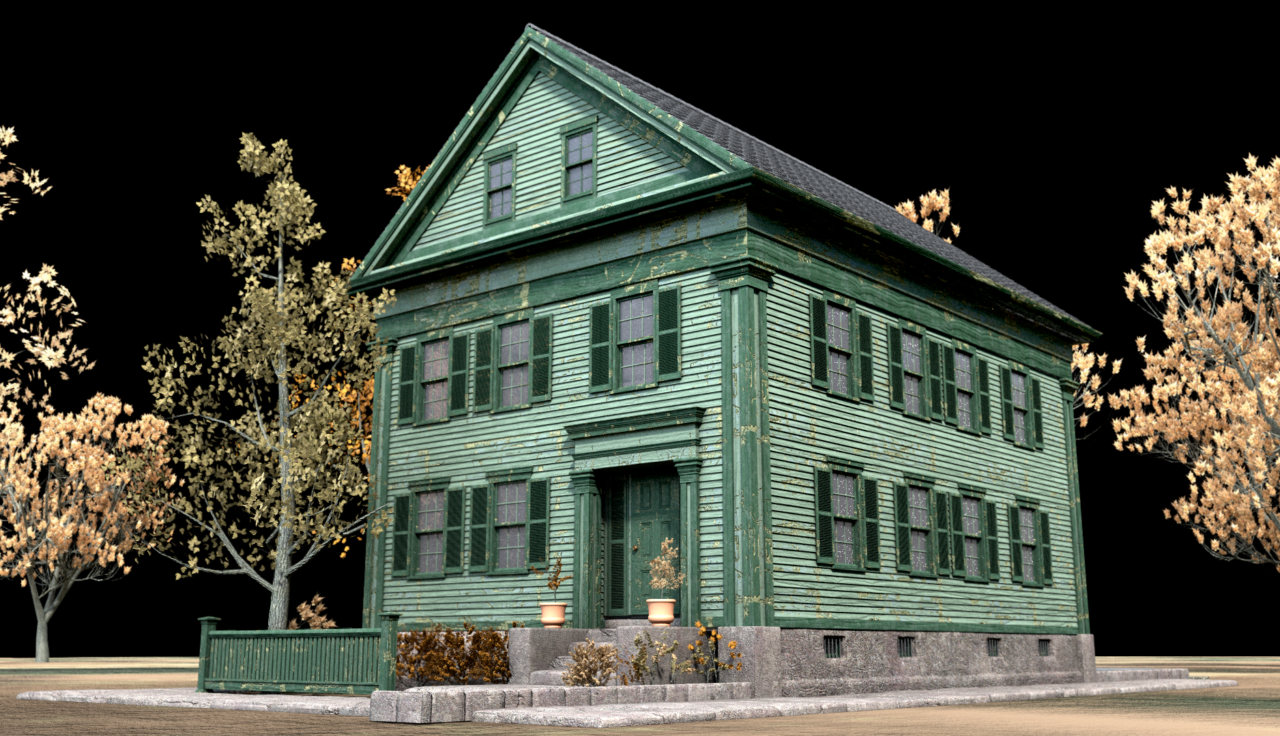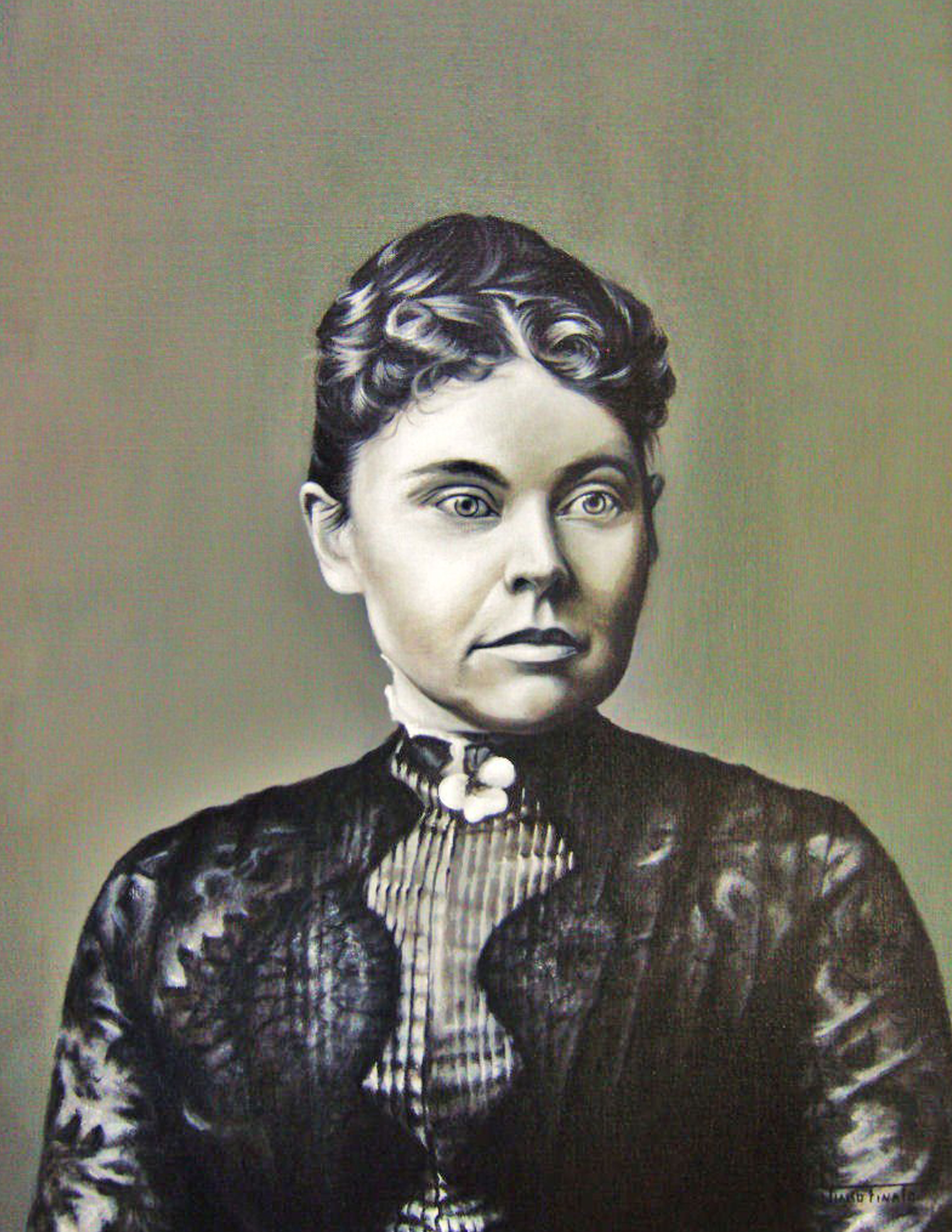Insanity, cruelty, murder
An excerpt from the new book about Lizzie Borden


Every American kid who’s ever jumped rope knows this rhyme: “Lizzie Borden took an ax and gave her mother 40 whacks. And when she saw what she had done, she gave her father forty-one.” Lizzie was acquitted of the 1892 murders due to lack of evidence (she burned a dress before the police could confiscate it), and the all-male jury’s belief that no woman could commit such a bloody crime.
While the murders have created a cottage industry of books, movies, and TV, See What I Have Done by first-time author Sarah Schmidt is something else altogether. The story focuses on the day the murders are committed. The narration shifts among several people, including the older sister Emma, the oppressed Irish maid Bridget, and Lizzie herself, who veers wildly between gimlet-eyed slyness, childlike neediness, and knife-sharp cruelty toward anyone who crosses or ignores her.
Even the house is a character of sorts, with its perpetually locked rooms, rancid and rotting food, and dark basement housing several sharp axes. And then there are the newly decapitated pigeons in the barn.
The voices combine to tell a story of a family beset by decades of unhappiness and rage. They wake on a stifling summer day and one by one become sick from a days-old pot of rotten mutton soup. (Or was it poisoned?) When the cruel, taciturn father Andrew comes home from work sick, Lizzie sweetly offers to help him take off his shoes. Shortly afterward she calls out to Bridget, “Someone’s killed father.” It’s not long before the girls’ stepmother is found upstairs.
Schmidt plays with the idea that someone else —a man hired by the girls’ equally strange uncle — may have committed the crime, but her portrayal of a family ready to implode points to Lizzie as the murderer.
Creepy, feverish and impossible to put down, See What I Have Done is a summer read that will chill you to the bone. Atlantic Monthly Press. 324 pages.
(Want more Lizzie? Look for the movie. Lizzie starring Chloe Sevigny and Kristen Stewart due out later this year.)
Enjoy this excerpt from See What I Have Done by Sarah Schmidt.
EMMA
August 4, 1892
SECOND STREET WAS thick with skin. I slowed out of the horse and carriage, glanced at the swarm of onlookers at the front of the house, their strange-looking faces. My shoulder ached and I combed fingertips over knotted muscle. I was home. A few people in the crowd placed hands across their chests as I walked by and I recognized faces: Mr. Porter, the young carriage driver whose son always had a runny nose; Mrs. Whittaker, her cabbage cheeks ballooned in talk; little Frances Gilbert, Lizzie’s least-favorite Sunday school pupil, scratching up her wild hair, her squirrel eyes gazing at the house. I tried to make eye contact. Somewhere a voice: “I wonder if she knows?” News traveled fast: what kind of accident exactly?
I looked at the sky, cloud shadows over my face, noticed a bird center itself on top of the roof. I blinked and everything became quiet. The house looked so ordinary and I kept thinking over and over “Abby missing.” How was it possible a woman Abby’s age could disappear? Had she slipped out at night? Had she forgotten to leave a note, forgotten to tell Father that she would be back and not to worry? Or had she decided to give in to one of her moods and leave for good, walked down to the river, stepped onto a boat and floated downstream until she reached the sea, where she jumped overboard, drank salt water and sank like an anchor?
The crowd parted as I walked towards them and ten women cried, their cheeks red with gossip. I heard, “Lizzie,” slip from my mouth and step by step my thighs tightened, shoulders cringed, body scared.
A police officer emerged from the side of the house and said, “Miss Borden, please come this way.”
It was true. There had been an accident. I was taken through the side entrance, hadn’t wanted to think about what was inside the house, but then there I was. I stepped inside, noticed the heat immediately, the drying of my tongue. The door to the sitting room was closed. I heard the words, “Time of death,” strange male voices that beat against my ear. My hands petrified.
“Your sister is in here.” Fingers pointed to the dining room.
There: Dr. Bowen, Mrs. Churchill, Alice Russell. Strange men surrounded Lizzie, had reduced her to the size of a child.
“What has happened?” My hands, sweat.
Alice Russell came forwards, “Oh, Emma,” and wiped her brow and temple.
My sister worked her fingers along her skirt, fidgeted in that way that always annoyed me. There were small indentations along Lizzie’s jawline and I could tell she had been picking at her skin as if using her nails as tweezers. I knew this: she had tried to stop herself from worry. On Lizzie’s skirt I caught a stain, small and rust-colored. My skin pulled tight around my ribs, hands sweated. “What has happened?”
In the corner of the room a police officer stuck out his chest, the shape of a wooded birdcage, smoothed a hand over his mustache and watched Lizzie. I coughed and the officer straightened and lengthened his fingers across his stomach. The air, salty thick.
“If you would like to sit down, Miss Borden.” The officer’s tone was high-pitched, too rehearsed.
“What has happened?”
Heads hung low.
“Your parents,” someone said.
“Father,” Lizzie said, her voice quiet.
“Your father and mother have died.
”My head began to throb. “Why are there so many people here?”
“Emma, it’s a tragedy.” Dr. Bowen was solemn, almost too hard to hear.
I locked eyes with Lizzie, her face was stone. How strange she looked. Words were unsaid. Lizzie swallowed hard, made the sides of her throat move in and out, a frog’s mouth, said, “I’m so glad you’ve come back, Emma,” and she put her hand out in front of her, fingers stretched, and waited for me to take hold.
“What happened?”
Breaths were held. I sat next to Lizzie and tied my arms around her shoulders, breathed her in. An odd smell. Side by side our bodies stitched together and I felt like I was drowning in salt and sweat. The heavy drum kick of Lizzie’s heart thumped along fingers and bone. She was too much for me to take. I closed my eyes, wished Lizzie would disappear each time I squeezed her.
“Emma.”
I opened my eyes. Lizzie stared back, tried to pull away.
“Emma, let me go. You’re making me feel faint.” She pushed against me.
I let go of her. “What happened?”
Lizzie whispered, “Uncle is here.”
That man. I scanned the room. “Why?”
“He came for a visit last night.” Lizzie, almost sing-song.
“Where is he?”
“He’s out running errands. He has to come back soon,” Lizzie said. She chewed the inside of her cheek.
A pause, then, “Something very bad happened today, Emma,” Mrs. Churchill said and sat beside me, took hold of my hand, stroked skin until it became numb. The facts were kept brief, tumbled out of Mrs. Churchill and the police officers as if they were one person:
“Someone killed your father and mother.”
“Happened this morning.”
“We had believed that Mrs. Borden was out visiting a relative, but . . .”
“Your sister is in shock.”“Lizzie found him in the sitting room this morning.”
“Your maid and Mrs. Churchill discovered your mother in the guest room.”
“Lizzie had sent Bridget to get help.”
“No sign of forced entry.”
I wanted something to make sense. How long had I been away?
“Emma, hold me close again.” Lizzie like a cat.
The noise of voices continued. Mrs. Churchill spoke softly into my ear, “ . . . I couldn’t believe it was happening . . . oh . . . I saw Lizzie by the door . . . there . . . I asked her . . . we made sure . . .” I tried to shrug away sensations of pins and needles, forced voices out of my head. I caught Lizzie’s tongue peeking through, swirling over her teeth. The noise it made. I smiled at my sister, stroked her temples, tried to get her to calm. Lizzie’s heart beat through the sides of her head; rapid, mountainous, and cascaded into my fingers. I wanted the world to stop.
SEE WHAT I HAVE DONE © 2017 by Sarah Schmidt. Reprinted with the permission of the publisher, Atlantic Monthly Press, an imprint of Grove Atlantic, Inc. All rights reserved.
